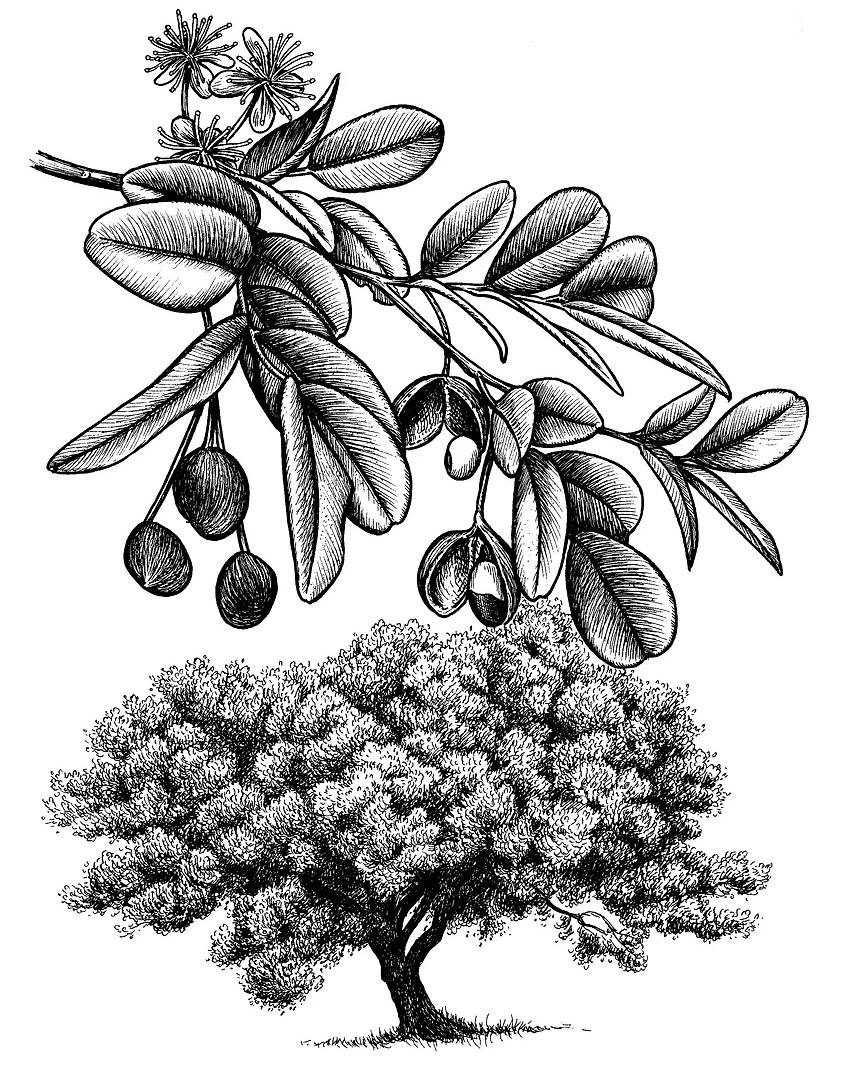
COPAÍBA
Copaifera langsdorffii
Copaiba, refers to a genus of trees found mainly in the Amazon rainforest and other parts of South America. Copaiba trees produce a resin that has been traditionally used by indigenous peoples for various purposes, including medicinal applications. The most well-known species in this genus is Copaifera officinalis.
Copaiba resin is obtained by tapping the trunk of the Copaiba tree, allowing the resin to flow out. This process is similar to how maple syrup is collected from maple trees.
The resin contains a variety of bioactive compounds, with the primary active components being sesquiterpenes and diterpenes. One of the main compounds found in copaiba oil is beta-caryophyllene.
Traditional Uses:
Indigenous peoples in the Amazon have traditionally used copaiba resin for its potential health benefits. It has been applied topically to promote wound healing, soothe skin irritations, and as a traditional remedy for respiratory issues.
Skincare and Topical Applications:
Copaiba oil is a powerhouse of botanical nutrition for your skin. It contains plumping and moisturizing properties that are ideal for boosting collagen, reducing wrinkles, and improving scars and stretch marks, while also containing anti-fungal and astringent properties that are ideal for acne prone skin. Additionally, copaiba oil is rich in a molecule called beta-caryophyllene that interacts with skin cells and causes them to produce beta-endorphin, a hormone associated with feelings of happiness.
Anti-Inflammatory Properties:
Beta-caryophyllene, a major component of copaiba oil, is known for its anti-inflammatory effects. Copaiba oil is often used for conditions associated with inflammation, such as arthritis and skin irritations.
Antimicrobial Activity:
Some studies suggest that copaiba oil may have antimicrobial properties. This can be beneficial for skin health, as it may help combat certain bacteria and fungi.
Aromatherapy:
Copaiba essential oil is used in aromatherapy for its pleasant, sweet, and woody aroma. It is believed to have calming and grounding effects.
Pain Relief:
Traditional uses of copaiba include its application for pain relief. It has been used topically for joint pain, muscle aches, and discomfort.

